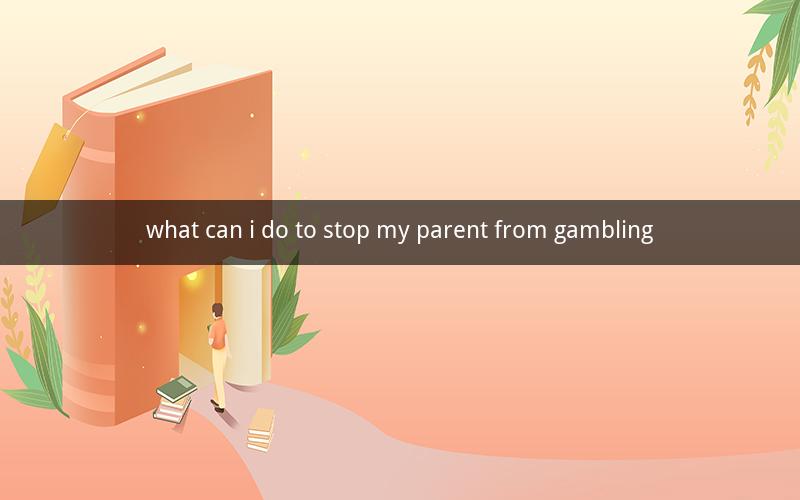
How to Help Your Parent Overcome Gambling Addiction
Table of Contents
1. Understanding the Problem
2. Communicating with Your Parent
3. Encouraging Professional Help
4. Setting Boundaries
5. Supporting Your Parent's Recovery
6. Taking Care of Yourself
7. Resources for Support
1. Understanding the Problem
Gambling addiction is a serious issue that can have profound effects on an individual's life, as well as the lives of those around them. It's important to recognize the signs of gambling addiction, such as secretive behavior, financial strain, and neglect of responsibilities. Understanding the nature of the addiction is the first step in helping your parent overcome it.
2. Communicating with Your Parent
Open and honest communication is crucial in addressing your parent's gambling problem. Choose a calm and private moment to discuss your concerns. Use "I" statements to express your feelings without placing blame. For example, "I feel worried when I see you spending a lot of time gambling" rather than "You always gamble and it worries me."
3. Encouraging Professional Help
Professional help is often necessary to address gambling addiction. Encourage your parent to seek out a therapist specializing in addiction or a counselor at a gambling treatment facility. These professionals can provide personalized strategies and support for overcoming the addiction.
4. Setting Boundaries
Establishing boundaries can help protect your parent from further financial and emotional harm. This may include limiting access to gambling activities, monitoring bank accounts, and setting clear expectations about financial contributions. It's important to communicate these boundaries clearly and consistently.
5. Supporting Your Parent's Recovery
Supporting your parent's recovery involves more than just setting boundaries. It includes being there for them during difficult times, celebrating successes, and helping them find healthy coping mechanisms. Encourage your parent to participate in support groups or other recovery activities.
6. Taking Care of Yourself
It's easy to become overwhelmed when trying to help a loved one with a gambling addiction. It's crucial to take care of yourself during this process. Seek out support for yourself, whether it's from friends, family, or a support group for loved ones of addicts.
7. Resources for Support
There are numerous resources available to help both the individual with the gambling addiction and their loved ones. Here are some organizations and websites that can provide assistance:
- Gamblers Anonymous: An international fellowship of men and women who share their experience, strength, and hope with each other that they may solve their common problems and help others to do the same.
- National Council on Problem Gambling: Offers resources and support for individuals and families affected by problem gambling.
- Gam-Anon: A support group for friends and family members of gamblers.
- Gamblers Help Online: Provides self-help resources and support for individuals struggling with gambling addiction.
Questions and Answers
1. Q: How can I help my parent admit they have a problem with gambling?
A: Encourage them to seek professional help, as therapists can help them recognize and acknowledge their addiction.
2. Q: What if my parent refuses to get help?
A: Continue to offer support and resources, but understand that the decision to seek help must come from your parent.
3. Q: How can I help my parent manage their finances during recovery?
A: Consider setting up a joint account or using financial management tools to help keep track of spending and prevent access to gambling funds.
4. Q: What should I do if my parent starts gambling again after they've stopped?
A: Remain supportive and encourage them to return to treatment or seek additional support.
5. Q: How can I support my parent without enabling their addiction?
A: Set clear boundaries and be consistent in enforcing them. Offer support in healthy ways, such as helping them find new hobbies or activities.
6. Q: What if my parent's gambling addiction is causing financial problems for the entire family?
A: Seek financial counseling or legal advice to address the financial issues and protect the family's interests.
7. Q: How can I help my parent find a support group?
A: Research local support groups or online communities and provide them with information on how to join.
8. Q: What if my parent's gambling addiction is affecting my mental health?
A: Seek support for yourself through counseling or support groups for loved ones of addicts.
9. Q: How can I help my parent develop healthy coping mechanisms?
A: Encourage them to try new activities, such as exercise, meditation, or creative pursuits, to help them manage stress and anxiety.
10. Q: What if my parent's gambling addiction is causing legal problems?
A: Consult with a legal professional to understand the options available and how to address the legal issues.